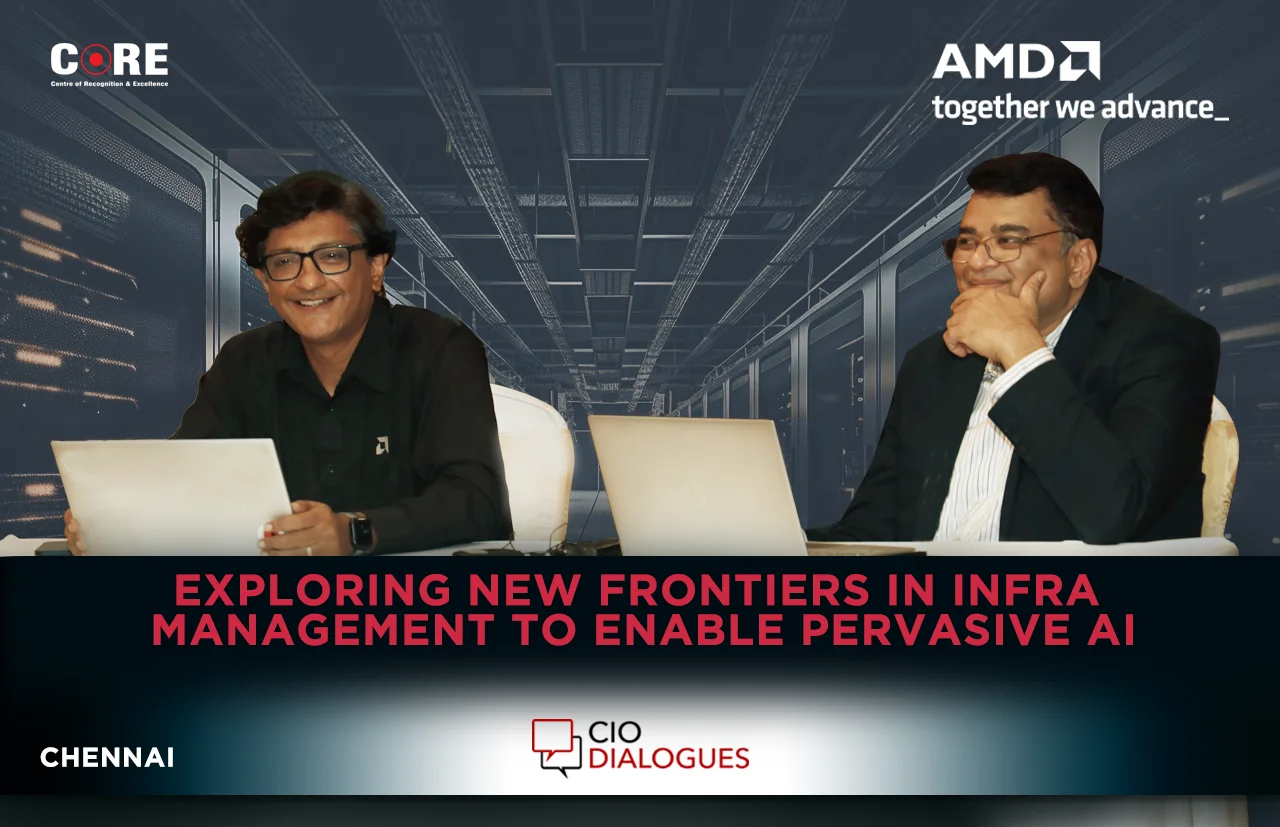Modern enterprises are strategically looking out for secure, user-friendly, and versatile solutions for developing infrastructure, aiming to promote innovation and operational efficiency while facilitating the scalable delivery of products and services.
The rise of transformative technologies like AI has the capacity to revolutionize infrastructure management, amplifying efficiency, reliability, and security. In response to the expanding intricacies and prevalence of AI, there is a compelling need for cutting-edge infrastructure management solutions to guarantee seamless integration.
In a closed door discussion curated by CORE Media, powered by AMD, CIOs and Digital Leaders explored high-performing, secure, and efficient solutions for the seamless adoption of AI for efficient infrastructure management.
Sudhir Kamath, Country Director, CORE Media opened the conversation by talking about the need of robust infrastructure to optimize operations that drive business value. Joining him as co-host in this discussion was Vasuki K.S, Country Manager - Enterprise Business & Regional Head, AMD India.
The duo discussed how vital it is for modern enterprises to adopt secure, user-friendly, and adaptable infrastructure solutions that foster innovation and scalability. Acknowledging the potential of emerging technologies, particularly AI, in revolutionizing infrastructure management, the discussion emphasized the need for cutting-edge solutions to seamlessly integrate the growing complexity and ubiquity of AI.
The session addressed critical aspects such as ensuring effective infrastructure management strategies supporting AI integration across industries, data security and privacy concerns, and outlining AMD's vision and strategies for shaping the future of AI infrastructure management.
Additionally, CIOs unveiled the complexities of AI integration, sharing real-world challenges from their specific projects. Data silos hampered training, outdated systems demanded rework, and skill gaps stalled progress. Legacy tools lacked compatibility, while explainability concerns and change resistance added hurdles. They emphasized the need for modernized infrastructure, standardized platforms, upskilled teams, robust data governance, and agile development to navigate these complexities and unlock AI's transformative potential.


